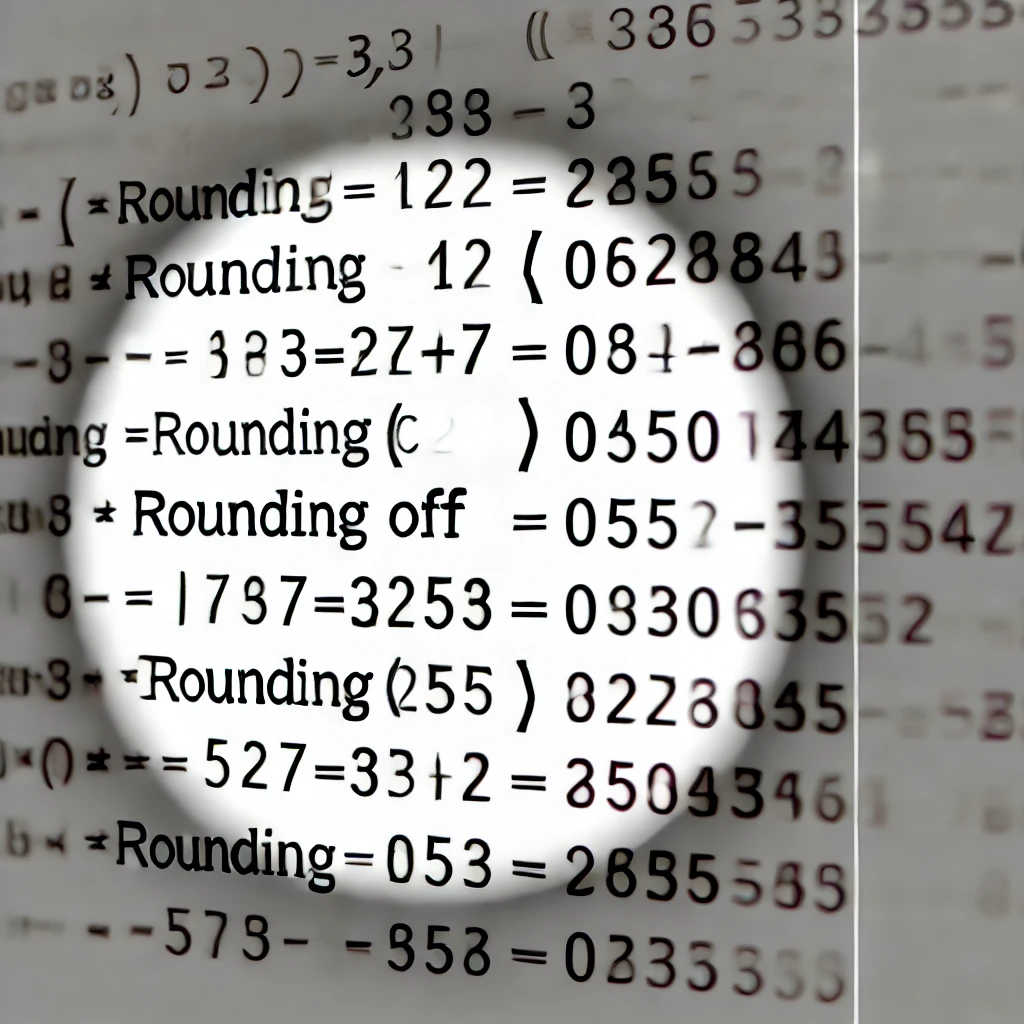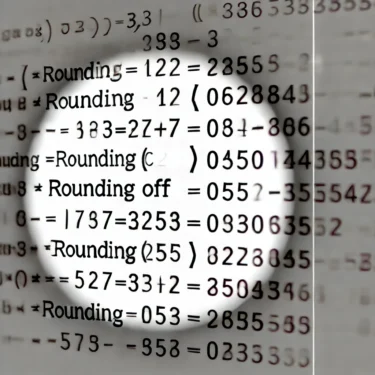1. Basics of Rounding: Why Is It Necessary?
In programming, properly controlling the precision of numbers is extremely important. Especially when calculation results include decimals, using rounding allows you to simplify and organize the results for better clarity. For example, rounding is used in various situations, such as monetary calculations and the aggregation of measurement data.
Concrete Examples of Rounding
For instance, rounding 2.5 results in 3, while rounding 2.3 results in 2. Such processing is commonly seen in everyday life. In the world of programming, there are also many cases where it is necessary to simplify calculation results in this way.
2. How to Round Numbers in C Language
To perform rounding in C, you can use the round() function included in the math.h library. This function rounds the decimal value provided as an argument to the nearest integer.
Basic Usage of the round() Function
Here is a basic example using the round() function:
#include <stdio.h>
#include <math.h>
int main() {
double x = 2.5;
printf("Rounded result: %f\n", round(x));
return 0;
}When you run this program, the output will be “Rounded result: 3.000000”. This is because the round() function rounds 2.5 to the nearest integer, 3. Be sure to include the math.h library.
3. Rounding to a Specific Decimal Place
In C, if you want to round to a specific number of decimal places, you need to use a little trick. A common method is to multiply the value by a power of ten to shift the decimal point, round it, and then divide to return to the original scale.
Example Code for Specifying Decimal Places
#include <stdio.h>
#include <math.h>
int main() {
double num = 123.456;
num = num * 100; // Convert to integer for two decimal places
double result = round(num) / 100; // Round and revert to original scale
printf("%.2f\n", result); // Output is 123.46
return 0;
}In this program, num is multiplied by 100 to shift the decimal two places, then rounded with round(), and finally divided by 100 to return to the original scale. In this example, 123.456 is rounded to 123.46.
4. Rounding Without Functions
In C, you can also implement rounding without using the round() function. In this case, you can simply add 0.5 and cast the result to an int type to round the value.
How to Manually Round Numbers
#include <stdio.h>
int main() {
double num = 2.3;
int rounded = (int)(num + 0.5);
printf("Rounded result: %d\n", rounded);
return 0;
}In this code, 2.3 is added to 0.5 to become 2.8, which is then cast to an int, resulting in 2. By adding 0.5, you can perform rounding properly. This technique is useful as an alternative to the round() function.

5. Rounding Negative Numbers
Rounding can be applied not only to positive numbers but also to negative numbers, though the results might not always be intuitive. For example, rounding -2.5 gives -3, not -2. The round() function in C follows the standard rules for rounding negative numbers.
Example of Rounding Negative Numbers
#include <stdio.h>
#include <math.h>
int main() {
double num = -2.5;
printf("Rounded result: %f\n", round(num));
return 0;
}Running this program will round -2.5 to -3.0. This is because the same rounding rules apply to negative numbers. Be sure to check the behavior and confirm that the result is as you intend when handling negative values.
6. Other Rounding Methods in C
Besides rounding, there are other ways to process decimals, such as truncation (floor) and ceiling (ceil). In C, you can use the floor() function from math.h to round down, and the ceil() function to round up.
Examples of Floor and Ceil
#include <stdio.h>
#include <math.h>
int main() {
double num = 2.7;
printf("Floor: %f\n", floor(num)); // Result: 2.0
printf("Ceil: %f\n", ceil(num)); // Result: 3.0
return 0;
}In this program, using floor() on 2.7 returns 2.0, while ceil() returns 3.0. floor() rounds down (ignoring the decimal), and ceil() rounds up.
7. Summary
In C programming, you can easily perform rounding using the round() function from the math.h library. While rounding to a specific decimal place or handling negative numbers requires some extra steps, flexible number handling is possible with the right implementation. By choosing between rounding, truncation, or ceiling as appropriate, you can perform a wide range of numeric processing in C.





